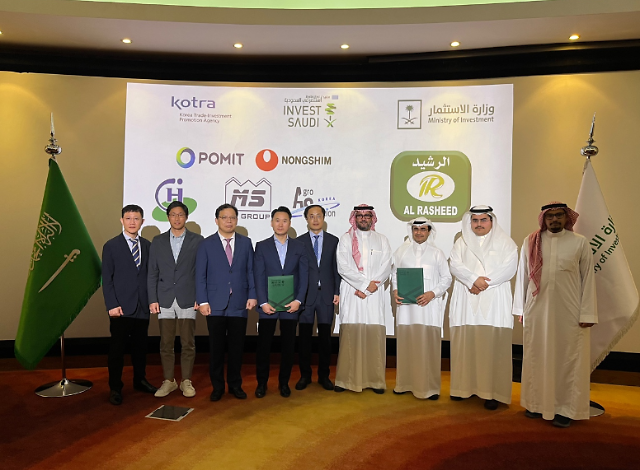
[Courtesy of Nongshim]
A smart farm is an automated indoor farm capable of automatically analyzing the temperature, humidity, and amount of sunlight using the internet of things (IoT) technology. Farmers can grow plants without having to worry about weather conditions.
In 2020, Saudi Arabia created a $500 million fund to nurture its agricultural sector to overcome weather conditions such as extremely high temperatures and humidity in summer. South Korean companies have tried to export smart farms to the Middle Eastern country with a population of some 36 million. In November 2022, Kolon Global, a construction engineering company affiliated with South Korea's Kolon Group, unveiled its scheme to build smart farm infrastructure for strawberries in Saudi Arabia.
Nongshim said in a statement on March 13 that its consortium, which includes three other domestic companies, partnered with Saudi Greenhouses, a Saudi Arabia-based horticultural production firm, to install smart farm infrastructure that can cultivate South Korean strawberry seeds through a $30 million project. The South Korean food company aims to create new business opportunities worth more than $100 million.
The Nongshim-led consortium signed an agreement with Al Marina Holdings, a food service company in the United Arab Emirates (UAE) to build smart farm infrastructure for strawberries. The Rural Development Administration, a state agricultural research institution in South Korea, is targeting the Middle East market with cooling house-type smart farms that can protect crops from extreme heat. In 2019, South Korea and the UAE agreed to jointly research rice cultivation techniques in the desert and smart greenhouse cooling systems.
Saudi Arabia is striving to diversify its economy and nurture its public service sectors including health, education, and tourism rather than relying on the oil business through a state project called "Saudi Vision 2030."
Copyright ⓒ Aju Press All rights reserved.




